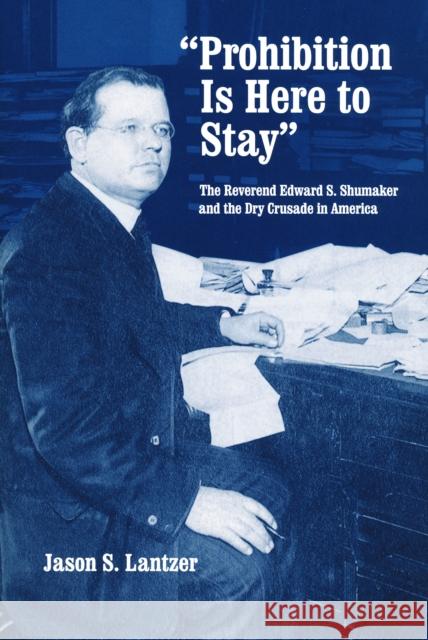Prohibition Is Here to Stay: The Reverend Edward S. Shumaker and the Dry Crusade in America » książka
Prohibition Is Here to Stay: The Reverend Edward S. Shumaker and the Dry Crusade in America
ISBN-13: 9780268033835 / Angielski / Miękka / 2009 / 320 str.
Prohibition Is Here to Stay: The Reverend Edward S. Shumaker and the Dry Crusade in America
ISBN-13: 9780268033835 / Angielski / Miękka / 2009 / 320 str.
(netto: 129,23 VAT: 5%)
Najniższa cena z 30 dni: 130,31
ok. 30 dni roboczych
Dostawa w 2026 r.
Darmowa dostawa!
" Prohibition Is Here to Stay "focuses on the Reverend Edward S. Shumaker, a Methodist minister who for nearly twenty-five years led Indiana's influential chapter of the Anti Saloon League. Shumaker was one of the most powerful men in Indiana in the fight against demon rum, and his influence extended well beyond the boundaries of the state during the late nineteenth and early twentieth centuries. Jason Lantzer uses Shumaker's life and work to shed new light on the rise and fall of Prohibition and to better understand and appreciate the interplay of religion and politics in American culture.Drawing on Shumaker's personal papers as well as archival work, Lantzer argues that understanding the role of religious faith and in particular evangelical Protestantism is essential to understanding Prohibition. Shumaker's religious faith inspired his crusade against alcohol and his efforts to make the Indiana Anti Saloon League one of the strongest political pressure groups in the country. Lantzer argues that Edward Shumaker's life and the cause to which he devoted most of it were not aberrations but exemplars of central currents in American culture of the time. Lantzer also connects Shumaker and the prohibition movement in Indiana to larger issues of America's transition from a predominantly rural society to an urban culture, with the attendant fears of change, loss of values, the impact of industrialization, and foreign immigration.
Jason Lantzer's excellent biography of Edward Shumaker places one of America's most successful Prohibition crusaders in the very center of American religion and reform. Lantzer's careful research and thoughtful analysis sharply contradicts the tendency to see Prohibition as a mere sidebar to American history and opens our minds to the connections between political activism and religious faith. James H. Madison, author of "Slinging Doughnuts for the Boys: An American Woman in World War II" Given Lantzer s access to Edward Shumaker s personal papers, his narrative of Shumaker s life is undoubtedly an authoritative one. In addition, the book increases our understanding of the organizational dynamics of the Indiana prohibition movement, the Indiana Anti-Saloon League (IASL) s political endeavors, and the IASL s relationship with African Americans, Catholics, and the Ku Klux Klan. Ann-Marie Szymanski, University of Oklahoma In this sympathetic, serious account of Reverend Edward Shumaker and the Indiana prohibition movement, Jason Lantzer brings to life an earlier, formative phase in what Americans have ruefully come to call the culture wars, in which ethnic, religious, and cultural divisions within communities can give rise to and perpetuate rancorous conflicts over standards and behavior. While that story is important enough, Lantzer also evokes the atmosphere and life of Indiana's cities and small towns as the Midwest struggled with the powerful, sometimes frightening forces of urbanization, industrialization, and immigration. Lantzer's book is worth reading because of its imaginative re-creation of the social and intellectual environment out of which evangelical, moral reform efforts such as Shumaker's prohibitionism grew. Alan Lessoff, editor of the" Journal of the Gilded Age and Progressive Era" Based on newly opened manuscripts and impressive research in local sources, this study of Edward Shumaker sheds new light on the workings of a state Anti-Saloon League, its leader, and state and national politics and public policy. Shumaker was an important figure in the Prohibition faction that was unbending in its commitment to strict law enforcement and the prevention of drinking. K. Austin Kerr, Ohio State University"











